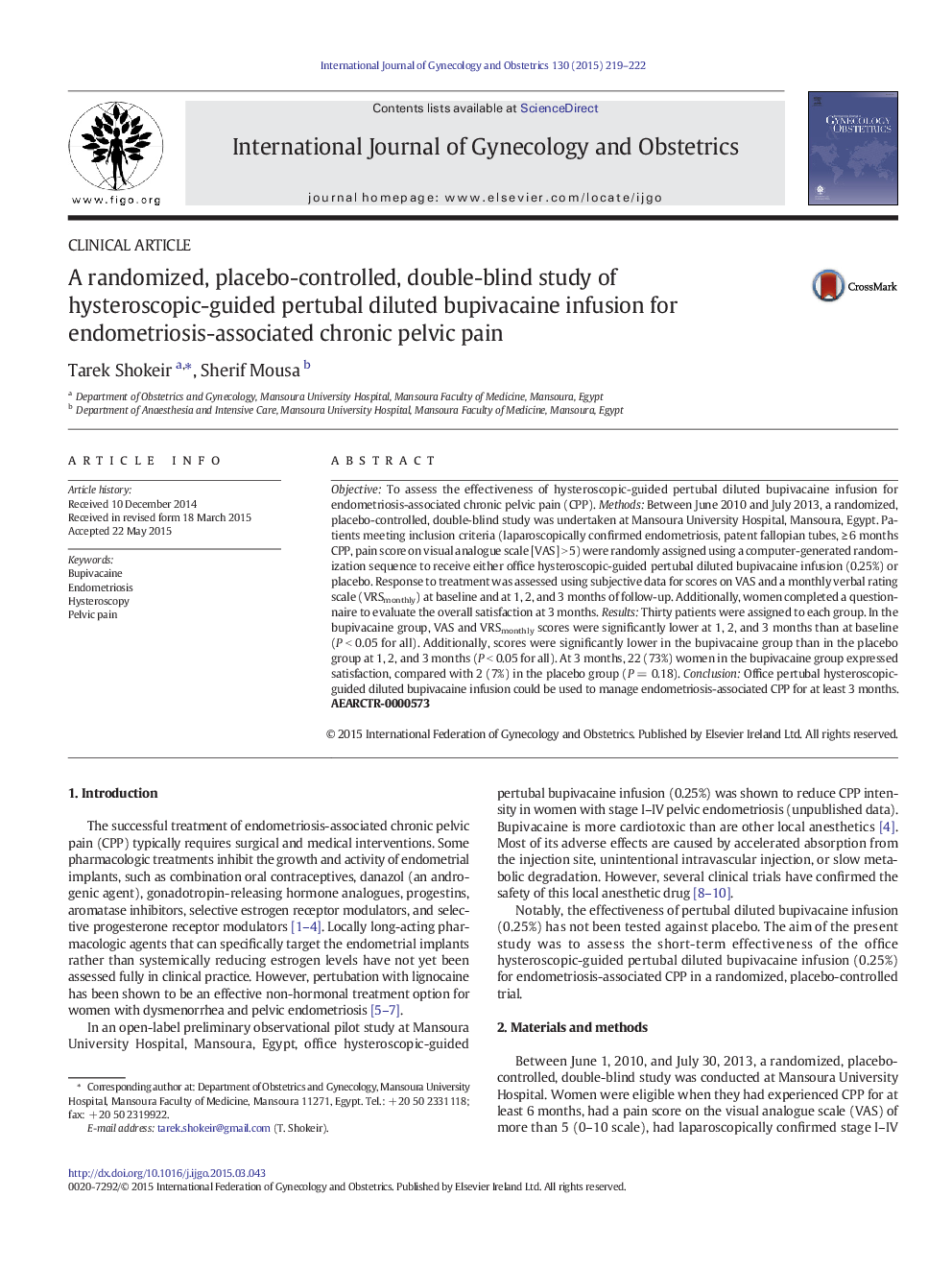| Article ID | Journal | Published Year | Pages | File Type |
|---|---|---|---|---|
| 3952566 | International Journal of Gynecology & Obstetrics | 2015 | 4 Pages |
ObjectiveTo assess the effectiveness of hysteroscopic-guided pertubal diluted bupivacaine infusion for endometriosis-associated chronic pelvic pain (CPP).MethodsBetween June 2010 and July 2013, a randomized, placebo-controlled, double-blind study was undertaken at Mansoura University Hospital, Mansoura, Egypt. Patients meeting inclusion criteria (laparoscopically confirmed endometriosis, patent fallopian tubes, ≥ 6 months CPP, pain score on visual analogue scale [VAS] > 5) were randomly assigned using a computer-generated randomization sequence to receive either office hysteroscopic-guided pertubal diluted bupivacaine infusion (0.25%) or placebo. Response to treatment was assessed using subjective data for scores on VAS and a monthly verbal rating scale (VRSmonthly) at baseline and at 1, 2, and 3 months of follow-up. Additionally, women completed a questionnaire to evaluate the overall satisfaction at 3 months.ResultsThirty patients were assigned to each group. In the bupivacaine group, VAS and VRSmonthly scores were significantly lower at 1, 2, and 3 months than at baseline (P < 0.05 for all). Additionally, scores were significantly lower in the bupivacaine group than in the placebo group at 1, 2, and 3 months (P < 0.05 for all). At 3 months, 22 (73%) women in the bupivacaine group expressed satisfaction, compared with 2 (7%) in the placebo group (P = 0.18).ConclusionOffice pertubal hysteroscopic-guided diluted bupivacaine infusion could be used to manage endometriosis-associated CPP for at least 3 months.AEARCTR-0000573
